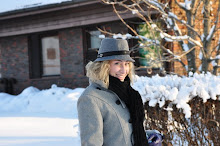
The success of Finnish education
According to PISA, Finnish students of 15 years have the best results worldwide, in terms of reading skills and math. The Program for International Student Assessment (PISA) is based on analyzing the performance of students from a global test are conducted every three years and aim to the international assessment of students. This report is conducted by the Organization for Economic Cooperation and Development (OECD), which is responsible for conducting standardized tests to students in 15 years. The report conducted in 2006 involving 62 countries, and in each country were examined between 4500 and 10,000 students. When analyzing education systems in other countries and the variables of its success, the tendency to imagine that could mechanically imitate the experience, without considering the historical context of that society.
Let's talk about the historical context of this rich society; Finland is a small country, where does the welfare state, democratic society with a very even and equal, where there are gender matched early in the language, with a leading position in research and high technology, culture, Lutheran, disciplined and great tradition of education since the founding of its first university in 1640, the Academy of Turku.
During the Swedish rule, Finland was only a group of provinces with no national identity. But since its annexation to Russia in 1809 became an autonomous duchy of the Russian tsar, constituting its national unity and territorial. During this period flourished the Finnish nationalist movement which promoted the Finnish language, inspiring their actions in the literature and newspapers (Finland is a country where today, people read more newspapers), thereby promoting the cultural identity of the people, despite foreign domination. It is no coincidence that the Finnish women were the first in Europe to achieve the right to vote in parliamentary elections in 1906.
I have synthesized key points of Finnish education, it was not technology or computers, or the Nokia brand, the differentiating factors of this "education miracle" are:
The school and university education is free, which means the receipt of an essential right of all citizens and an assessment of the social state as protector. There is consistency in the quality of schools. No more than 10 private schools across the country, connected with the schools systems Waldorf, Montessori or religious.
Education is not focused on taking tests or national tests, is taught to learn to be a responsible member of society, ethical and humane, and to give their students the right skills to meet the challenges ahead and to continue learning throughout the life. There is a sense of altruism and cooperation rather than a competitive sense.
There decentralization and autonomy in defining the curriculum. Every 5 years, this is discussed and amended by the professors of a locality, based on state guidelines. This means that all teachers define their needs and participate in the generation of plans and programs, through a democratic process that engages students and parents at local municipal level.
Education is inclusive to all. Applicants to a school are admitted without exception for their difficulties, there is no separation of sexes. The teaching is child-centered. Parents can discuss together with teachers personal learning plan for their children.
There is a solid, thorough and free university education of teachers . The teaching profession is well regarded and social values. 26% of school leavers aspire to become teachers. To enter the teaching careers is a rigorous selection, only supported about 10% of applicants. The most relevant in the selection examination are the personal characteristics and the vocation of the applicant to pedagogy. The basics of training a teacher is that he must learn to conduct research, manage theories acquire methodological skills and metacognition, to produce knowledge through results of these inquiries, becoming an expert researcher. At the same time have 30% of their learning and practical case studies and solving real problems. This allows teachers repeaters are not simply knowledge, but people with great capacity for reflection. Constructivism is practiced in detail. They require a master's degree according to Bologna agreements, for which they have to do a research thesis. Teachers who want to have direct access to the PhD.
For teachers of primary school until 6th grade level, are prepared to teach all subjects strength of the curriculum. For over 5 years, should be trained in language, mathematics, natural sciences, history, ethics, aesthetics, religion and technology, music and the arts, children's literature and drama, physical education and crafts, as well as acquiring knowledge of special education . Learn teaching methods is less important than the ability of a teacher to reflect and make decisions based on their teaching practice. There are no formal evaluations of teacher performance, they are trusted. Teachers have pedagogical freedom, as they are experts in their fields.
A school day: the basic 8 to 9 hours, preschoolers only 4 hours (700 hours per year, 6 different content guidelines), the largest 6-7 hours daily. The number of students per class: 26 in elementary, 36 in average. There are no dropouts, no students repeating the whole age group goes off course and the teachers are 100% responsible for their students to learn. At 15 hours the teachers finish their work, then develop administrative tasks, correct and develop their projects work, according to the season in those country it gets dark at 4 o'clock.
There is a sense of social responsibility practice school for cooperation in various aspects of school discipline. Special effort to highlight those students with more learning or adjustment difficulties, who receive special attention in mainstream education, by teams of students, teachers, parents and other experts. Importantly, this responsibility extends to the Finnish prison system where basic education is provided to inmates.

No comments:
Post a Comment